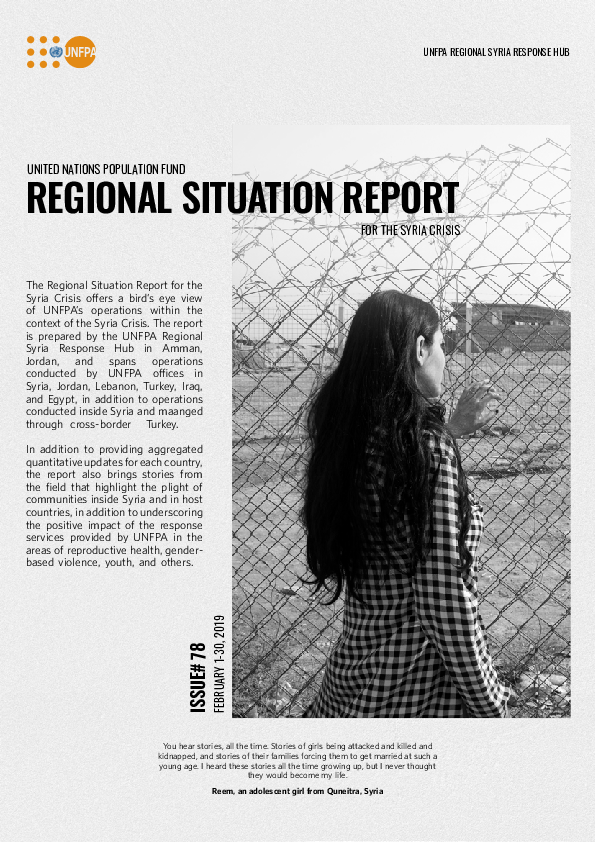With the Syria crisis approaching its ninth year, the country faces a new reality in which gender dynamics have been significantly altered. Even as parts of Syria appear to be stabilizing, the situation has long since passed a tipping point in terms of accumulated effects, with women and girls shouldering the larger portion of the consequences of the crisis. The lingering ramifications of conflict and displacement are now so fundamentally ingrained that they require long-term and strategic solutions.
In terms of reproductive health, disruptions in service networks over the past years have meant that a significant number of people have limited to no access to basic health services, which has placed the lives and wellbeing of Syrian mothers and their infants at risk. Moreover, civilians continue to suffer the effects of over eight years of conflict, including disruption of community networks, safety nets and rule of law. Moreover, the loss of civil documentation poses immediate and long-term risks, restricting the movement of civilians and preventing access to basic health services.
